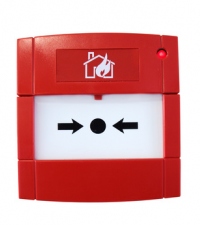Covering medical expenses in the US with insurance

Your health forms a vital part of your well-being, which is why it is essential to have health insurance to cover expenses on possible ailments. Expats tend to make various mistakes when purchasing health insurance. So, in this guide, we will discuss how health insurance works, the pitfalls that come with handling your medical expenses with insurance and give you tips on how to make the most of it.
Stepping out of your home country always seems like a big move, and most times, it is the best decision. But when moving to a new country, especially a country such as the US, there are certain factors you must consider, like feeding, accommodation, and medical expenses.
How health insurance works in the US
Unless you are among wealthy people in the US or the government covers you, you will need to pay for health insurance. Medical insurance gives you access to instant healthcare since you don’t have to depend on the government to offset your bills like in other countries. You just need to choose a medical insurance company with suitable offers and pay them for a combination of offers, including monthly premiums, deductibles, and co-pays.
Many argue healthcare cost in the US is directly proportional to the quality of treatment you receive. In this country, medical experts have progressive facilities and training to handle the most complex clinical issues. Yet, people can’t help but feel that medical costs are deliberately hiked to boost profits for the medical insurance industry as hospitals often have beneficial arrangements with insurance companies.
But defying the system may render you penniless in emergencies because of how expensive healthcare in the US is. And it doesn’t matter if you are a foreigner in the country; knowing how the healthcare system works there can save you thousands of dollars. And unless you are above 65 or meet other requirements that qualify you for Medicare, living in the US without medical insurance is financial suicide.
Four Common Medical Insurance Pitfalls
Assuming you don't need medical insurance
You may have to deal with a sudden health situation, and the last thing you want in those moments is to have to foot medical bills that your life savings can’t cover. Yet, without medical insurance cover, your options are limited. For instance, you can spend as much as $1200 on an ambulance in an emergency without insurance. Common blood tests could set you back $3000 and you could have to cough up a whopping $35,000 for a sprained ankle due for surgery. So no matter your age or bill of health, you should have an insurance policy as an ex-pat in the US to save costs.
Opting for an insurance plan that doesn't cover existing medical issues
There are multiple medical insurance plans. If you opt for one and let's say it covers medical issues that haven't emerged yet, you are on the right track. However, you have to ensure that your insurance plan also covers previous health issues. So if you had any sickness before migrating, discuss it with your insurance company and make sure that the plan covers its expenses.
Relying on domestic policy/ travel insurance
One of the most important things to note is that the insurance plan in your country will likely not cover you in the United States. When purchasing a policy at home, it is advisable to get an international one, especially if you know that you will be relocating soon. A global insurance plan may be enough to cover traveling and relocation expenses. Still, they rarely cover major medical bills, including pregnancy, medical tourism, sporting injuries and pre-existing medical conditions. So relying on your travel insurance to save the day is not a smart idea when in the US.
Obtaining a plan without maternity coverage
If you plan on getting pregnant as an ex-pat, ensure that your global insurance plan includes maternity coverage. But you have to apply for it 12 months before getting pregnant. It could mean a significant liability when you conceive if you don't, especially if the baby has medical conditions. It will then become impossible to make insurance adjustments on medical bills.
There are many pitfalls, but these are the basic mistakes ex-pats make. We know that moving to a new country or an entirely different continent isn't easy. Some insurance companies are just waiting for ex-pats to rip off. So, here are some tips that will help you when purchasing an insurance plan:
Tips on Covering Medical Expenses with Insurance in the United States
Be careful when choosing your PCP
There is a PCP ID number on your insurance card, and it is one of the most important things on your card. PCP stands for Primary Care Provider, and they are medical practitioners. Their function is to teach you how to live healthily and refer you to specialists whenever issues arise. They typically work with outpatients, but they can also help you if admitted to a hospital by directing your care plan. Before allowing your insurance company to assign a PCP to you, ensure that the PCP:
- Prioritizes your treatment
- Has friendly caregivers
- Is available at your beck and call
You have to be comfortable with your primary care provider to discuss any sensitive health issues you may have. Then, ensure you add their numbers to your speed dial, making contacting them in emergencies faster.
If you are not financially buoyant, consider your eligibility for subsidized insurance
Medicare is a US federal government-sponsored insurance available to people of 65 years and above, kids with disabilities, and people with End-stage renal failure. There are four coverages under this insurance plan:
- Part A, which covers hospital costs and other inpatient expenses and is free
- Part B, which covers certain outpatient care services and costs $148.50 per month
- Part C, which merges Parts A and B with prescription drugs, routine dental and vision checks
- Part D, which provides coverages only for prescription drugs at $41.64 per month
Obamacare (Affordable Care Act) is another great initiative that subsidizes medical insurance costs for low-income families. This option covers at least ten essential health benefits, including emergency services, preventive care and maternity care. However, you cannot get Obamacare as an ex-pat as it is only available to American citizens.

Being unemployed doesn't stop you from getting coverage
When you move to the United States, you might not get a job immediately, prompting anxiety. And even if you are employed, not all employers provide medium coverage for their employees. Luckily, while being unemployed, you may still find affordable insurance through the marketplace.
But if you can't pay for any insurance and need an emergency, you shouldn’t worry. Medics will attend to you and nurse you back to health. However, the costs will ruin your credit score or even bankrupt you. So consider insurance plans based on your household size and income, such as low-cost or free coverage through Medicaid or Children's Health Insurance Program (CHIP).
Conclusion
No matter how careful you are, you can’t predict if and when you may need medical aid. So without an insurance plan, you may end up spending all your savings on health emergencies. As a precaution, you should purchase a health insurance plan, especially in countries like the United States, where private medical expenses are through the roof. But weigh your options holistically, look out for the pitfalls covered in this article, and don't be scared to reject any insurance plan that does not meet your present and foreseeable needs.
About the author
Amanda Dudley is a writer and lecturer with a Ph.D. in history from Stanford University. She speaks English and German fluently and has been lecturing since 2001. Ms. Dudley constantly seeks new techniques to make learning easier for her students and provide education for disabled children. When she is not teaching, she provides a reliable essay writing service, helping students write stellar essays and meet burning deadlines.
- My Life Abroad -
A selection of expat stories

"A fun compulsive read!"
J. Matcham, Amazon
"I strongly advise people ready to live abroad to read this book!"
Patrice, Amazon

 Guide to the European Health Insurance Card
Guide to the European Health Insurance Card  Making a Plan for an Emergency Back Home
Making a Plan for an Emergency Back Home How to Choose Expat Health Insurance
How to Choose Expat Health Insurance APRIL Travel Insurance
APRIL Travel Insurance Cigna Global
Cigna Global William Russell
William Russell Cost of Studying in the USA for International Students
Cost of Studying in the USA for International Students